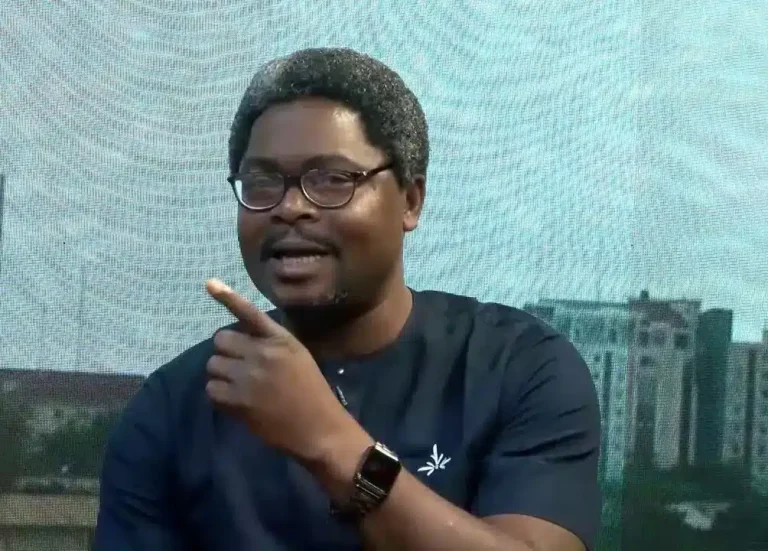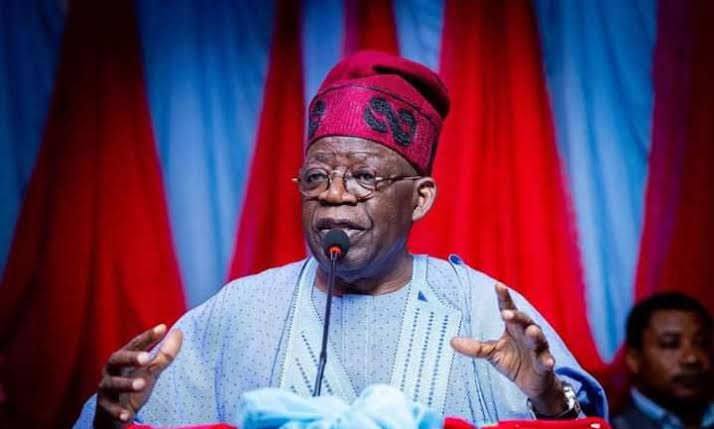News
Nigeria Loses $9bn Annually To Illegal Mining – Reps

News
Atiku’s influence on Dele Momodu driven by financial ties – Olayinka

Lere Olayinka, the Senior Special Assistant on Public Communications and Social Media to the Minister of the Federal Capital Territory (FCT), Nyesom Wike, has accused media personality and Ovation publisher, Dele Momodu, of being financially motivated in his continued support for former Vice President Atiku Abubakar.
In a strongly worded statement issued on Wednesday, Olayinka alleged that Momodu’s loyalty to Atiku is driven purely by financial gain, warning that the media figure would abandon the former presidential candidate once the flow of money ceases.
“Only someone like Dele Momodu, who does not have knowledge of anything apart from his stomach, would claim that it was Wike who drove Peter Obi out of the PDP,” Olayinka said, dismissing recent comments made by Momodu.
He further accused Atiku of undermining the Peoples Democratic Party (PDP) over the years, recalling how, in his words, Atiku “frustrated the party’s efforts to win Lagos State in 2003.”
Olayinka also challenged Momodu’s claim that Atiku had proposed zoning the PDP presidential ticket to the Southeast in the 2023 elections, noting that Atiku had already purchased the party’s Expression of Interest form before the zoning committee had made any formal decision.
“In his display of arrogance or mischief, Dele Momodu claimed that Atiku wanted PDP to field a candidate from the eastern part of the country. But he chose not to mention that the same Atiku had already declared his interest in running for president,” he stated.
The FCT Minister’s spokesperson went further, pointing out a trend of close political allies distancing themselves from Atiku after elections. He cited the exits of former Ogun State Governor Gbenga Daniel, former Delta State Governor and Atiku’s 2023 running mate Ifeanyi Okowa, and others as evidence of what he described as Atiku’s self-serving political approach.
“Why did everyone who worked closely with Atiku during the 2019 and 2023 elections leave him after the polls? The answer lies in Atiku’s perceived selfishness,” Olayinka stated.
He also took aim at Momodu personally, questioning his loyalty and ethnic pride. “Wike is a proud Ikwerre man, unlike Dele Momodu who isn’t proud of his Edo origin,” Olayinka claimed.
News
Tinubu set to inaugurate world’s largest cotton factory in Ogun – Abiodun

Ogun State Governor, Prince Dapo Abiodun, has disclosed that President Bola Ahmed Tinubu would perform the groundbreaking for the establishment of the biggest cotton and polyester processing factory in the world at the Special Agro Processing Zone located at the Gateway International Airport, Iperu/Ilisan area of the State.
Speaking while receiving the former Accountant General of the Federation (AGF), Mrs. Oluwatoyin Madein, and members of the Iperu Development Association in his office at Oke-Mosan, Abeokuta, Governor Abiodun said the factory, which is under the “Renewed Hope Cotton Resurgent Initiative,” would sit on 400 hectares of land and would employ about 250,000 people daily.
He said: “In the next 30-45 days, we will be doing the groundbreaking of the Renewed Hope Cotton Resurgent Initiative that will be done by Mr. President himself. It is going to be a bigger factory, and it will be the biggest cotton and polyester processing factory in the world.
“It will employ 250,000 people per day. The promoters of this factory went around the whole state, and they decided that this is the place they want to site this factory because of the existing infrastructure like the airport, proximity to consumers, and the ability of raw materials to come in centrally.
“We are clearing the site, and this factory is going to sit on 400 hectares of land. It is like a whole new town. The requirements to support this industry can best be imagined. The economic impact on Iperu and its environs, the entire Remoland, Ijebu land, and the whole of Ogun State is beyond imagination,” Governor Abiodun said.
He said that apart from the cotton industry, the Nigerian Air Force (NAF) has also indicated interest in siting a base in the town to secure not only the airport but also to provide adequate security to Iperu and the adjoining towns.
Explaining the rationale behind the siting of the airport at Iperu, Abiodun noted that the town is at the central point of the state, which could be easily accessible from any part of the state, adding that the 100 housing units built by his administration at the Airport Housing Estate would soon be commissioned.
The present administration, the governor informed, embarked on the reconstruction of the old Ibadan and other township roads while public schools and primary healthcare centers were renovated, and a mother-and-child hospital was brought to the town.
He commended the former Accountant General of the Federation for her meritorious service to her state and fatherland, describing her as a true daughter of the state who served without blemish.
“Thank you for all you have done. You have attracted laudable projects like a women’s empowerment center, a mini stadium, and the erosion control project to the town as a form of giving back to society.
“You started from a humble background. You began your primary and secondary education here in Iperu and later went to Ogun State Polytechnic, Abeokuta, before proceeding to Ogun State University and working with the Ogun State Property and Investment Corporation (OPIC) before moving to the federal level.
“You are hardworking, diligent, focused, intentional, and a disciplined person. Thank you for making us proud; you are a pride to womanhood. It shows that gender must not be a limitation to what one can attain,” he added.
Speaking, Mrs. Madein appreciated the governor for creating a conducive business environment that has attracted a lot of investments to the state.
She said her reason for the visit was to give a report of her stewardship and to inform the governor of her various contributions to state and national development.
“The purpose of this visit is to come and give the report of my stewardship as the Accountant General of the Federation and to let you know that I have represented Ogun State well and contributed to national development.
“It is also to appreciate Your Excellency for the support you gave to me that enabled my success during my tenure,” she said.
Chairman of the Iperu Development Association, Otunba Taiwo Oyebanjo, noted that the combination of the governor and the Accountant General has greatly impacted the socio-economic development of Iperu, as the town now boasts modern facilities that have improved the standard of living.
The Ebi of Idena, Oba Lukman Salami, in his contribution, lauded the governor for the transformation witnessed in the last couple of years, noting that the town has moved from a village to a town with modern facilities.
News
UK resumes visa application services in Enugu, Port Harcourt

The United Kingdom has resumed visa application services in Enugu, months after closing its centre in the city.
Last November, the UK shut down its visa application centres (VACs) in Enugu and Port Harcourt following the launch of its largest facility in Lagos, operated by VFS Global.
At the time, VFS announced that Nigerians applying for UK visas would need to book appointments at VACs in Lagos or Abuja.
The now-reopened centres in Enugu and Port Harcourt were previously managed by TLScontact.
In an update on Wednesday, the British High Commission said visa application services have resumed in Enugu.
“Residents of Enugu, Nigeria, can now enjoy a smooth UK visa process from the comfort of our Premium Application Centre at Omedel Luxury Hotel,” VFS noted earlier.
The agency said applications can be submitted at the Omedel Luxury Hotel.
In Port Harcourt, applications are processed at Hotel Presidential, according to VFS.
-

 News16 hours ago
News16 hours agoAlleged money laundering: EFCC produces Aisha Achimugu in court
-

 News18 hours ago
News18 hours agoJUST IN: Major General Paul Ufuoma Omu Rtd, dies at 84
-

 News18 hours ago
News18 hours agoTinubu hails Dangote’s World Bank appointment
-

 News11 hours ago
News11 hours agoHon. Dennis Agbo Resigns From Labour Party
-

 News11 hours ago
News11 hours agoJust in: Osun PDP receives defectors from APC, others
-

 News20 hours ago
News20 hours agoSAD! Professor’s son takes own life inside varsity staff quarters
-

 News16 hours ago
News16 hours agoCBN announces revised documentation requirements for PAPSS transactions
-

 News16 hours ago
News16 hours agoReps Set Stage for Nigeria’s First Legislative Conference on Renewable Energy






